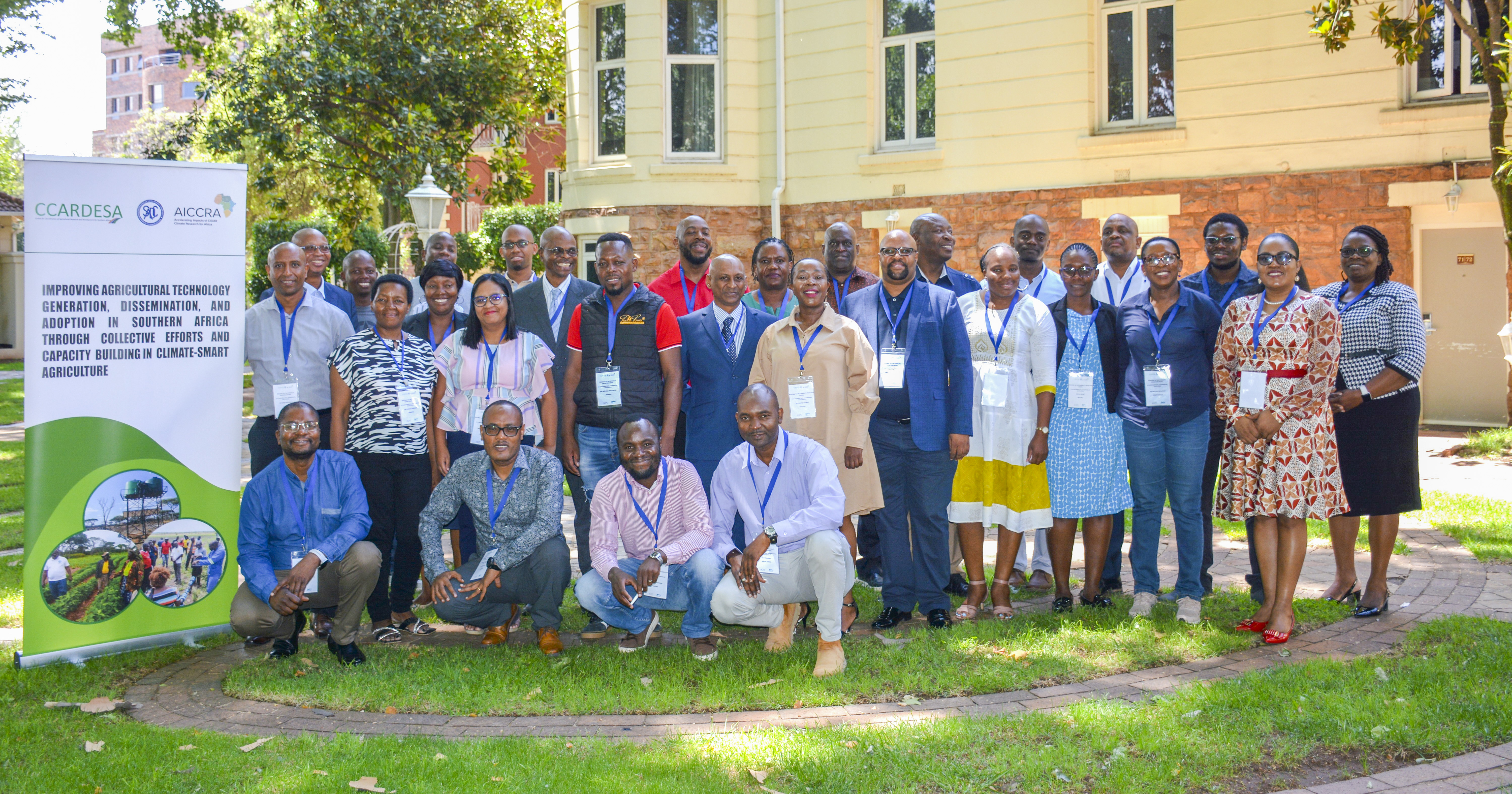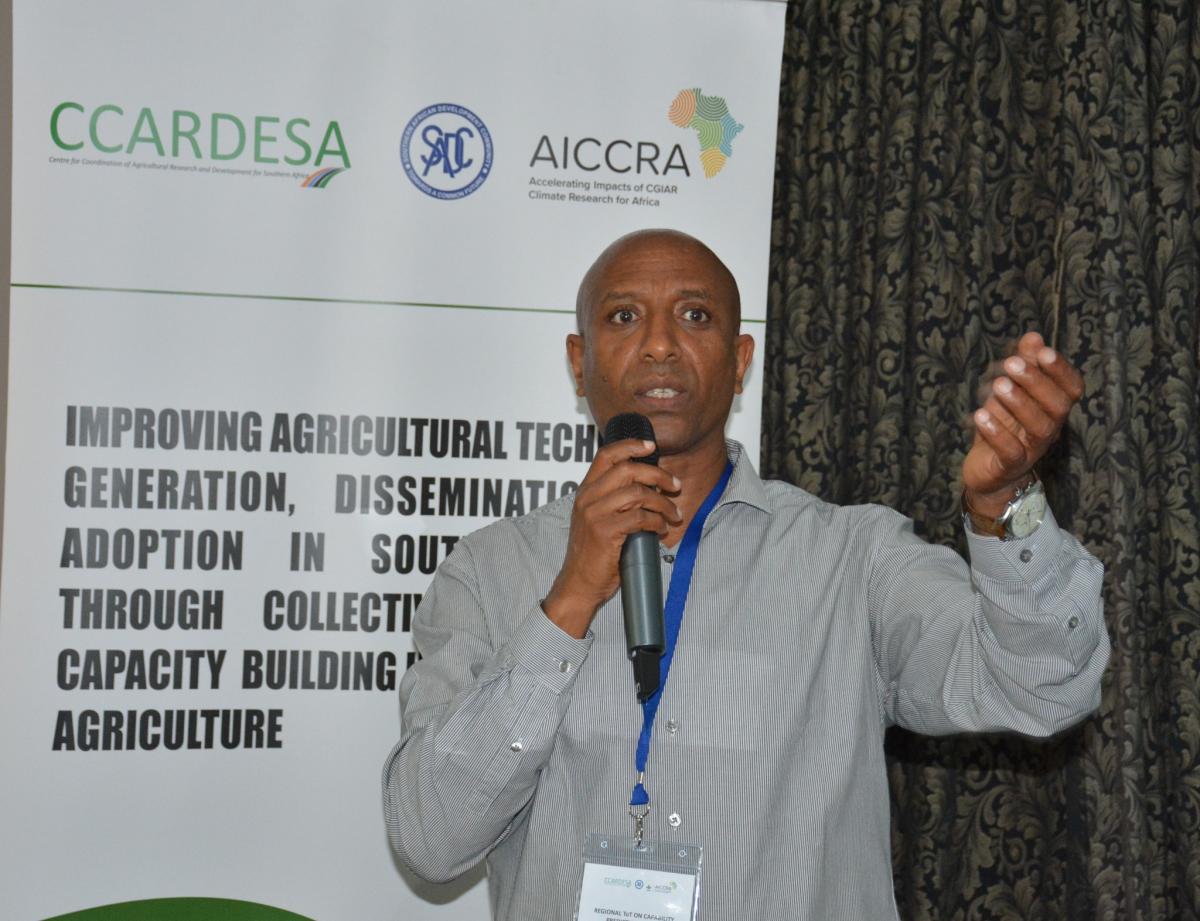CCARDESA Disseminates Crop Yield Prediction Model Across the Region

Centre for Coordination of Agricultural Research and Development in Southern Africa (CCARDESA) Executive Director, Professor Cliff Dlamini noted that the negative impacts of climate change have been worsened due to the lack of accurate climate information and agricultural advisories reaching farmers.
Professor Dlamini highlighted that CCARDESA was prioritising efforts to create and disseminate vital climate-informed decision-support tools for the agriculture sector, which were crucial for improving food systems' resilience against climate change impacts.
He was speaking when he officially opened the Training of Trainers workshop on Enhancing Forecasting Capabilities and Developing Crop Prediction Models in Johannesburg, South Africa

“To address this issue, Climate Information Services (CIS) in agriculture aims to provide a comprehensive range of advice on the impacts of climate change on the agriculture sector. This will help prevent, reduce and manage climate risks in agricultural production systems,” he underscored.
Professor Dlamini noted that it was critical to understand that the SADC region, which represented about a third of Sub-Saharan Africa’s population, had been experiencing more frequent and intense tropical cyclones, storms and droughts in recent years.
“Frequent extreme weather events caused by climate change have led to decreased production and productivity and increased food insecurity among rain-dependent smallholder farmers. In 2021-22, six major cyclones occurred, affecting over 2.5 million people in Malawi, Madagascar, Mozambique and Zimbabwe alone,” he disclosed.
And Director for Africa Trade Promotions, Winston Makabanyane, from the Department of Agriculture, Land Reform and Rural Development in South Africa challenged the trainers to improve the packaging of weather and climate information for purposes of agriculture.
“As the forecast is done, it should be done for the farmers. The information that is derived from the forecast must help the farmers to make concrete decisions on what crops to grow. Predicting weather information must go beyond stating normal to above normal rainfall,” he stressed.
Speaking at the same event, Head of the African Climate Policy Center at the United Nations Economic Commission for Africa, James Murombedzi, noted that there was a need to develop early warning systems which could inform decision-making in policy and focus research investments.
“Farming is the riskiest business you can ever imagine, farmers invest all their resources without knowing what will happen in that particular season. It is for this reason that working with partners like CCARDESA, AICCRA and Universities across Africa we came up with this initiative to develop tools, ways of disseminating those tools as well as training the users of the tools,” indicated Dr. Murombedzi. Speaking earlier, Accelerating Impacts of CGIAR Climate Research for Africa - Eastern and Southern Africa (AICCRA ESA) Regional Leader, Dawit Solomon, stated that the agriculture and food security sectors faced a lot of challenges due to climate change.
Dr. Solomon said climate change was a risk multiplier adding that SADC member states needed to identify their CIS needs and gaps to address the identified challenges.

““AICCRA plans to strengthen the real-time forecasting capabilities of National Metrological Services of Eastern and Southern Africa to generate the National Climate Outlook Reports to aid Policy Makers and farmers in their planning,” he explained
Meanwhile, Gillian Kabwe from Copperbelt University called for the integration of climate change in the school curriculum as behavioural change had been observed as a cause of negative response to climate information.
“In climate discussions, the issue has been with behavioural change and not necessarily with acceptance of the scientific information. We need to begin dealing with behavioural change so that issues are addressed at an early stage,” said Professor. Kabwe.
The participants of the training were Agriculturalists, Academicians, Policy Makers, Researchers and meteorologists drawn from the SADC member states.

























































